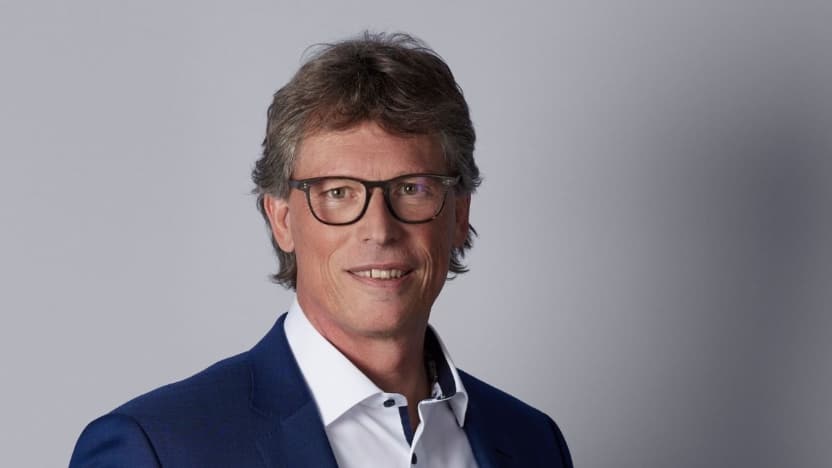Siemens sees India as a key driver of its global growth, investing in smart infrastructure, digital manufacturing, and Net Zero technologies to support the nation’s “Developed India 2047” vision.

Matthias Rebellius, Member of the Managing Board, Siemens AG and CEO Siemens Smart Infrastructure
As India accelerates towards its “Developed India 2047” vision, Siemens is positioning itself at the core of the country’s transformation journey—from powering infrastructure and smart cities to enabling digitalised manufacturing and Net Zero goals. In this interview with Matthias Rebellius, Member of the Managing Board, Siemens AG and CEO Siemens Smart Infrastructure, he outlines how India is driving the company’s global growth, innovation, and investments across energy, mobility, and industrial automation.
I’m very positive on India. It is one of Siemens’ main growth markets. Siemens is already a reliable partner in the Government of India's efforts towards “Developed India 2047.” In fiscal year 2025-26, India's private sector capital expenditure is projected to surge by 21.5%, driven by strong performance in infrastructure and power. Government capital expenditure is also set to increase with Rs 11.2 lakh crore allocated for investments in infrastructure, roads, railways, and energy this fiscal year.
Siemens sees considerable growth potential in the Indian market. We anticipate increased demand for technologies in smart buildings and smart infrastructure, for high-speed rail and for factory automation. The booming data center, driven by digitalisation and Artificial Intelligence applications illustrates the opportunities across various sectors, including semiconductors and battery manufacturing.
Siemens has invested over $1.1 billion since 2015, with an additional $125 million announced in November 2023. More investment is certain in the future, as India is a crucial market with a big pool of highly educated talent.
Siemens' commitment to India began in 1867, when the company’s founder Werner von Siemens oversaw the installation of the first telegraph line between London and Calcutta. Today, Siemens India boasts a strong manufacturing footprint, various Centres of Competence and R&D centers as well as a nationwide sales and service network.
As a leading tech company, Siemens supports India’s goals in infrastructure, industry and mobility and we are increasing our factory capacity under the “Make in India” initiative to meet both local and global demand.
Urbanisation is a megatrend shaping our world, necessitating smart, scalable, and resilient infrastructure. Siemens provides comprehensive solutions in automation, digitalisation, and electrification crucial for thriving cities and industries. Siemens solutions are reliable and versatile, essential for fast-growing regions. Digitalisation and the Internet of Things are vital to managing rising demand for energy, water, transportation and manufacturing capabilities. Industrial Edge solutions can connect legacy assets and new machines to the cloud enabling real-time insights and centralised control for optimising equipment, predicting failures, and reducing costs.
Digital twins are the turbos that boost these capabilities. They are the key to comprehensive simulation, predictive maintenance and real-time optimisation. For instance, a digital twin of a water treatment plant can simulate various scenarios such as population growth or droughts, helping planners to anticipate needs. In railway networks, digital twins optimise traffic and improve scheduling, leading to greater reliability and fewer outages. AI powers these digital twins helping to detect anomalies and manage energy distribution.
We support this transition by combining the real and the digital worlds. We connect hardware and software, employing sensors and AI to enhance efficiency, across various sectors. Some data points:
Smart grids can reduce energy transmission losses by up to 15% through digitalised grid management and advanced metering. Digitalised rail networks can increase capacity by 30% without additional tracks, using real-time signaling and AI for optimized scheduling. Smart building management systems can cut energy costs by up to 30% through automated climate control. Energy savings in water and wastewater plants can range from 10% to 30% via automated control and maintenance operations.
India is a powerhouse with one of the biggest growth potentials in the world. Global trends are coming into India faster than in other parts of the world, and the only way to ensure its electrical and manufacturing industry remain competitive is through technology. Digital technologies augmented with AI guarantee efficient operations and improved decision making. Siemens, with expertise across various sectors and markets, is prepared to assist our customers in addressing challenges. We view decarbonization and resource efficiency as essential to reducing emissions through technology, digitalization, and collaboration.
Siemens is the leading company in combining the real and the digital worlds, pioneering AI since the 1970s. Our digitalisation technologies are critical for making machinery intelligent, optimising production lines and enhancing operational efficiency. To compete at the highest levels of global manufacturing, India needs these technologies and Siemens is proud to be a partner in this transition.
Empower your business. Get practical tips, market insights, and growth strategies delivered to your inbox
By continuing you agree to our Privacy Policy & Terms & Conditions
